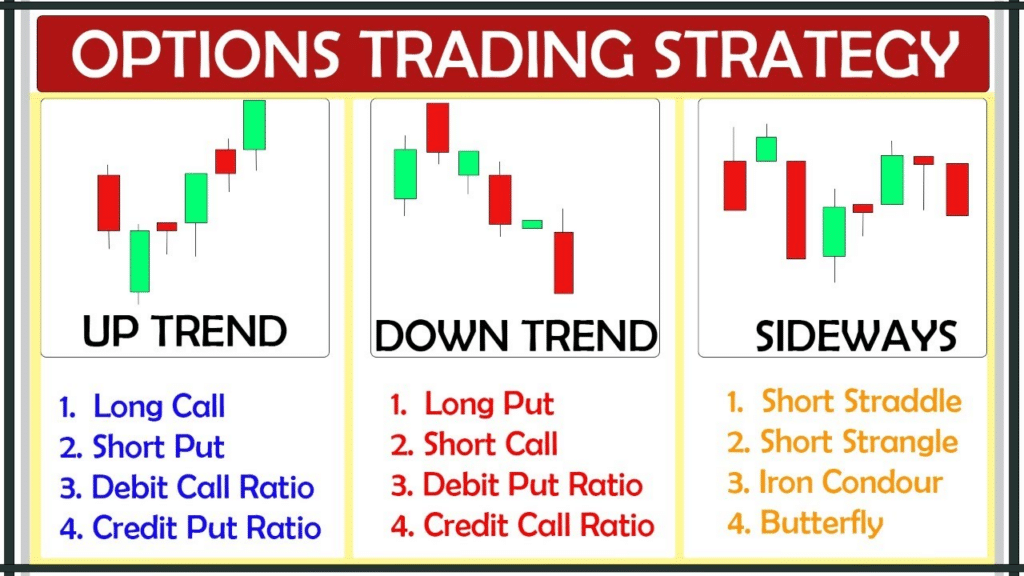In the tumultuous realm of financial markets, options trading stands as a powerful tool for investors seeking to harness the potential for profit while managing risk. Among the various types of options available, weekly and monthly options present distinct characteristics that can significantly impact trading strategies. This article delves into the nuances of trading weekly vs. monthly options, equipping readers with the knowledge to make informed decisions that align with their investment goals.

Image: investgrail.com
The Anatomy of an Option
Before delving into the differences between weekly and monthly options, it is essential to understand the underlying principles governing all option contracts. An option is a financial derivative that conveys to its holder the right, but not the obligation, to buy or sell a specified asset at a predetermined price on or before a specific date.
Options are classified into two types: calls and puts. Call options grant the holder the right to buy an asset, while put options confer the right to sell an asset. The price at which the underlying asset can be bought or sold is known as the strike price.
Weekly vs. Monthly Options: A Detailed Comparison
The primary distinction between weekly and monthly options lies in their expiration periods. Weekly options expire every Friday, while monthly options expire on the third Friday of each month. This difference in expiration duration has profound implications for trading strategies.
Time Value and Volatility
The time value of an option refers to the premium paid for the right to exercise the option before expiration. The closer an option approaches expiration, the less time value it retains. Weekly options decay in value more rapidly than monthly options due to their shorter time to expiration.
Moreover, weekly options exhibit higher volatility than monthly options. Volatility measures the degree of fluctuation in an asset’s price over a given period. As the expiration date for a weekly option nears, the uncertainty surrounding the asset’s price becomes greater, leading to increased volatility.

Image: www.insidewallstreetreport.com
Profitability and Risk
Weekly options offer the potential for significant profit but also carry greater risk than monthly options. Due to their accelerated time decay, weekly options can yield substantial returns in a short period if the underlying asset’s price moves favorably. However, the rapid loss of time value can result in substantial losses if the price movement does not materialize.
Monthly options, on the other hand, provide a more extended time frame for the underlying asset’s price to move in the desired direction. This reduces the risk of expiration-related losses but also limits the potential for extraordinary gains.
Choosing the Right Option for Your Trading Strategy
The choice between trading weekly or monthly options depends on the investor’s risk appetite, time horizon, and financial objectives. Weekly options are suitable for:
- Short-term trading
- Scalping and day trading
- Capturing quick price movements
Monthly options are more appropriate for:
- Long-term investments
- Position trading
- Mitigating the risk of premature expiration
Trading Strategies for Weekly and Monthly Options
Both weekly and monthly options offer diverse opportunities for trading strategies.
Weekly Options Trading Strategies
- Theta harvesting (selling near-the-money options close to expiration)
- Iron condor (selling a bull call spread and a bear put spread simultaneously)
- Covered calls (selling call options against a stock position)
Monthly Options Trading Strategies
- Long-term buy-and-hold (investing for appreciation over an extended period)
- Cash-secured puts (selling put options with the cash to buy the underlying asset if assigned)
- Married put (combining a long stock position with a purchased put option)
Trading Weekly Vs Monthly Options

Image: www.pinterest.co.uk
Conclusion
Navigating the nuances of trading weekly vs. monthly options requires a thorough understanding of the underlying concepts, risk-reward dynamics, and available trading strategies. By carefully considering the expiration periods, time value decay, and volatility characteristics of each option type, investors can develop an informed and customized approach to harness the potential for profit while managing risk in financial markets.
The choice between weekly and monthly options should align with the investor’s investment horizon, risk tolerance, and specific trading objectives. By leveraging the insights provided in this article, investors can equip themselves with the knowledge and strategies to navigate the options market effectively and achieve their financial goals.






